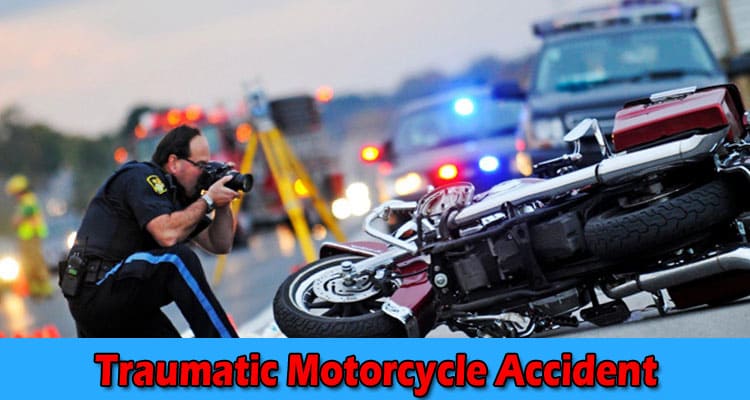Being involved in a motorcycle accident can be a crushing and life-altering experience. It causes physical injury and leaves deep emotional and psychological scars. The path to recovery and finding normalcy can be long and challenging. Yet, with the proper guidance, resources, and support, it’s possible to reclaim your life confidently. Explore some practical strategies for navigating this journey below.
Table of Contents
Practical Strategies for Moving On After a Motorcycle Accident
In the wake of a traumatizing event like a motorcycle accident, finding the strength to move forward can be daunting. Practical strategies such as setting achievable recovery goals and maintaining a positive mindset can be beneficial.
Regular physical activity within your doctor’s advised limits can help propel the recovery. It enhances your physical strength, improves mood, and reduces anxiety and depression symptoms.
Furthermore, learning new skills can provide a sense of accomplishment and boost your self-esteem. This could be a perfect time to enroll in an online degree like a geographic information systems (GIS) master’s. Acquiring a new skill through masters GIS programs, can offer a meaningful distraction and even open up new vocational prospects.
Importantly, keep communication open with your loved ones. Your family and friends form your primary support network. Their encouragement and assistance can go a long way in uplifting your spirits and fostering a positive outlook.
Understanding Traumatic Motorcycle Accidents and Their Effects
To process the experience and devise an efficient recovery strategy, it’s essential to comprehend the nature of traumatic motorcycle accidents. Such incidents often result in severe injuries, leading to long-term disability, pain, and suffering. Understanding their potential consequences can prepare you for the journey ahead.
Post any accident, it’s crucial to consult a motorcycle accident lawyer to understand legal recourse. They can guide you on insurance claims, compensation cases, and necessary actions for safeguarding your rights and interests.
It’s not just the physical injuries; psychological trauma is equally significant. People often struggle with fear, anxiety, depression, and post-traumatic stress disorder (PTSD) after a serious accident. Acknowledging mental health impacts is an integral part of healing.
Steps To Take Immediately After a Motorcycle Accident
In the aftermath of a motorcycle accident, the first course of action should be to secure your immediate safety and get medical help. This initial period is critical, and your actions can significantly impact the outcome of potential legal and insurance proceedings.
Document the accident scene, injuries, and any other relevant information. Having substantial evidence can prove beneficial during your legal campaign. Always cooperate with law enforcement and never admit your fault at the scene.
Alongside, seek out a competent lawyer who specializes in motorcycle accidents. They will advise you on your rights, guide you through insurance claims, and help prepare a compelling case for compensation if necessary.
The Importance of Seeking Medical and Psychological Help
Motorcycle accidents often result in severe injuries, sometimes leading to long-lasting health implications. Therefore, seeking immediate medical attention is mandatory, even if you feel fine immediately after the incident. Certain injuries, like traumatic brain injuries, may not manifest apparent symptoms immediately.
Equally important is seeking psychological help. The trauma from severe accidents can lead to mental health issues such as post-traumatic stress disorder, anxiety, and depression. These can interfere with daily life and delay physical recovery. Therapy and counseling can help manage these conditions.
How Support Groups Can Aid Recovery After a Traumatic Motorcycle Accident
Support groups consist of individuals who’ve experienced similar traumas. Participating in these groups can play a crucial role in your recovery journey. Sharing experiences, insights, and coping mechanisms can provide a unique reassurance that you’re not alone.
These communities can offer practical advice on dealing with physical injuries, managing pain, and even legal representation. Exchanging stories of progress can inspire, uplift, and motivate members towards a quicker recovery.
In addition, professional facilitators at these support groups often provide tools and strategies to deal with trauma. These can be beneficial in handling PTSD, developing resilience, and embracing the ‘new normal.’
Recovering from a traumatic motorcycle accident is undoubtedly challenging, but it’s viable with the right tools and support. Remember, every small step towards recovery brings you closer to reclaiming your life.


